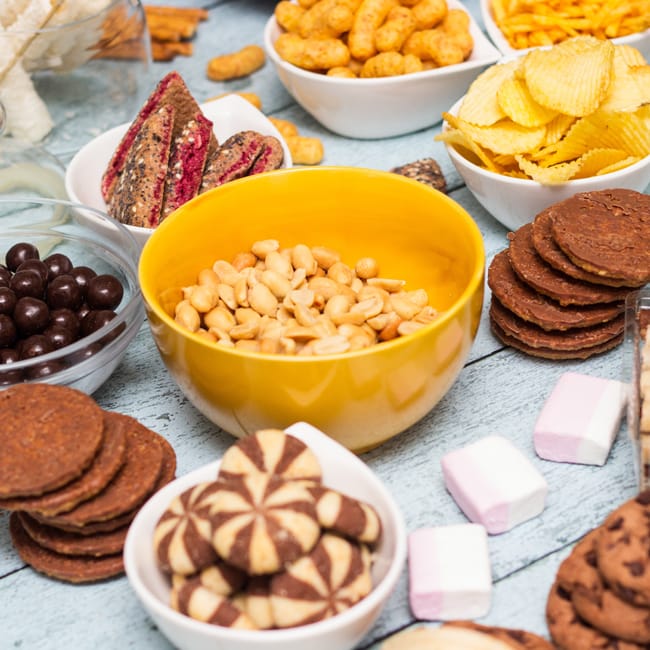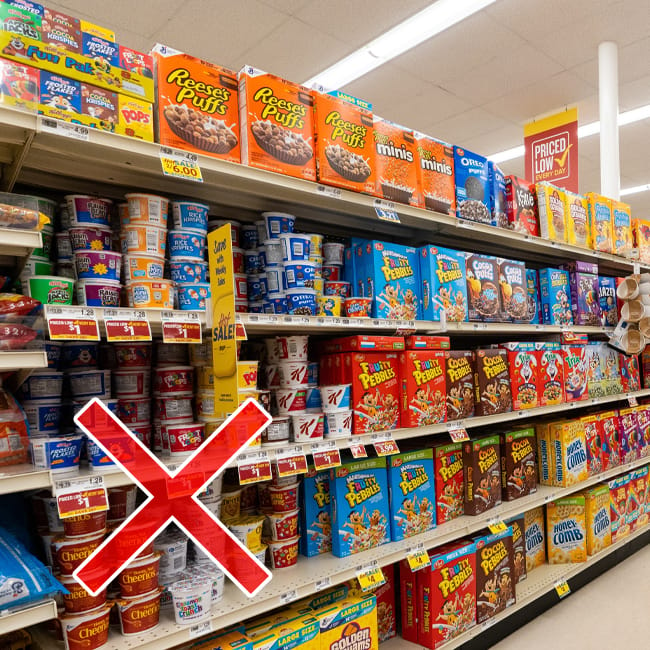Frozen dinners have become a popular choice for busy individuals seeking convenient and quick meal options. While they offer a time-saving solution, it’s essential to be mindful of their nutritional content and potential impact on weight gain and bloating. The convenience of frozen dinners often comes at the cost of nutritional quality. Consuming these meals regularly without considering their nutritional content may contribute to an imbalanced diet, leading to weight gain and digestive discomfort.
We spoke with Krutika Nanavati, a registered dietitian and nutritionist, to learn about three frozen dinners you shouldn’t be eating because they can worsen bloating and weight gain. Nanavati revealed that sadly, frozen pizza, frozen fried chicken, and frozen pasta dishes are the ones to avoid.


Frozen Pizza
Frozen pizza, a popular convenience food, can be a culprit in contributing to bloating and potentially influencing belly fat. Many frozen pizzas are high in refined carbohydrates, saturated fats, and sodium, which can lead to water retention and bloating.
Nanavati notes that the high sodium, refined carb, and high fat content is what makes frozen pizza a meal to steer clear of.
"Frozen pizzas tend to have high sodium levels, which can lead to water retention and bloating. A slice of frozen pizza can contain up to 400mg of sodium, exceeding half of the recommended daily intake (RDI) of 2,300mg," says Nanavati.
Surprisingly, not even the crust of the pizza is innocent here. "The crust of frozen pizzas is often made with refined white flour, which is rapidly absorbed and can cause fluctuations in blood sugar levels. These spikes and crashes can contribute to feelings of hunger and overeating, potentially leading to weight gain. Frozen pizzas often contain high amounts of saturated and unhealthy fats, particularly in the cheese and toppings. These fats can slow down digestion and contribute to bloating and discomfort," she says.

Frozen Fried Chicken
Frozen fried chicken, a convenient choice, may have implications for bloating and the accumulation of belly fat. These frozen varieties often contain high levels of unhealthy trans fats and saturated fats due to the frying process and added coatings. Consuming excessive amounts of trans fats and saturated fats can lead to inflammation, water retention, and bloating.
Nanavati reveals that these frozen fried chickens are laden with high amounts of sodium and processed ingredients, making them a high-calorie dinner.
"Frozen fried chicken is heavily coated in batter and fried in oil, significantly increasing fat content. A single serving of frozen fried chicken can contain over 50 grams of fat, exceeding the RDI of 44-77 grams for adults. Frozen fried chicken often contains processed ingredients, such as artificial flavors, preservatives, and fillers, contributing to inflammation and gut health issues," she says.
She further adds that "these issues can manifest as bloating, gas, and digestive discomfort. Frozen fried chicken is typically high in calories, often exceeding 500 calories per serving. Consuming these calories regularly can contribute to weight gain if not balanced with adequate physical activity."

Frozen Pasta Dishes
Frozen pasta dishes, while convenient, can be associated with bloating and the potential for belly fat accumulation. Many frozen pasta meals are high in refined carbohydrates, which can cause spikes in blood sugar levels, leading to increased insulin production and, in turn, promoting fat storage, particularly around the abdominal region.
There are a lot of frozen pasta options, but many of them are not as healthy as they seem in the frozen food aisle. Nanavati shares, "frozen pasta dishes are often high in sodium, similar to frozen pizzas. A serving can contain over 600mg of sodium, significantly exceeding the RDI. Frozen pasta dishes typically use delicate pasta, which is low in fiber and nutrients. This type of pasta can cause blood sugar spikes and crashes, leading to overeating and potential weight gain."
Creamy pastas are some of the most popular options, but even the consistency can pack on calories. "Many frozen pasta dishes are prepared with creamy sauces high in fat and calories. These sauces can contribute to bloating, discomfort, and potential weight gain."
Instead, Nanavati says you should opt for frozen meals such as lean protein dishes, vegetarian, and stir-fries. However, make sure to read the labels since a lot of these healthier frozen meals can have sneaky additives and processed ingredients which can affect bloating and weight gain.


























